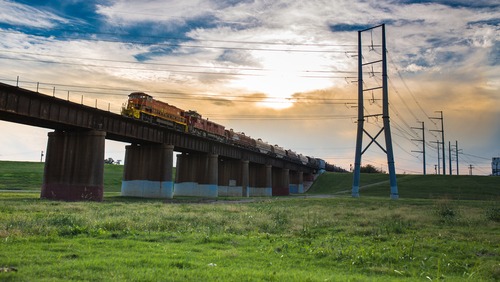
Texas Central Railroad announced Monday it has signed a $1.6 billion contract with Kiewit Infrastructure South Co. (Kiewit) and its affiliate Mass. Electric Construction Co. (Mass Electric), to install the core electrical systems needed to operate the high-speed train from Dallas to Houston.
The contract includes the installation of core electrical systems including Traction power, signaling, and communications equipment to enable trains to operate safely while ensuring tracks and operators communicate with one another, as well as with network operations.
“Kiewit and Mass. Electric are national leaders in installing complex and large-scale electric systems and have long track records of delivering high-quality rail systems safely and effectively,” Carlos Aguilar, CEO of Texas Central Railroad, said. “Combining their experience with the safety of an integrated system is essential to the operation of the Texas Central Railroad. Signing this contract is the next step in making the Texas Central Railroad the first high-speed rail system to be implemented in the United States.”
Texas Central uses an integrated approach to installing the components of the N700S Shinkansen technology to ensure all parts of construction and operations are married together seamlessly for safety, efficiency, and cost-effectiveness. The company said that using a “complete systems approach” creates “unparalleled safety performance with the trains, infrastructure and supporting high-speed rail technology designed and engineered to work together as an integrated unit.”
“We commend Texas Central on their commitment to delivering the first high-speed rail system in the United States,” said Mark Williams, Kiewit’s project director at Mass Electric. “Through their leadership and our extensive rail experience and expertise, we are well-equipped for success.”
The system will replicate the Japanese Tokaido Shinkansen high-speed rail system – one of the safest and most punctual train systems in the world. Over the train’s 55+-year history, it has transported more than 10 billion passengers with zero operational passenger fatalities and zero accidents.
Texas Central estimates the project will create 17,000 direct jobs during construction, over 20,000 supply chain jobs, and more than 1,400 permanent jobs when the train is operational.